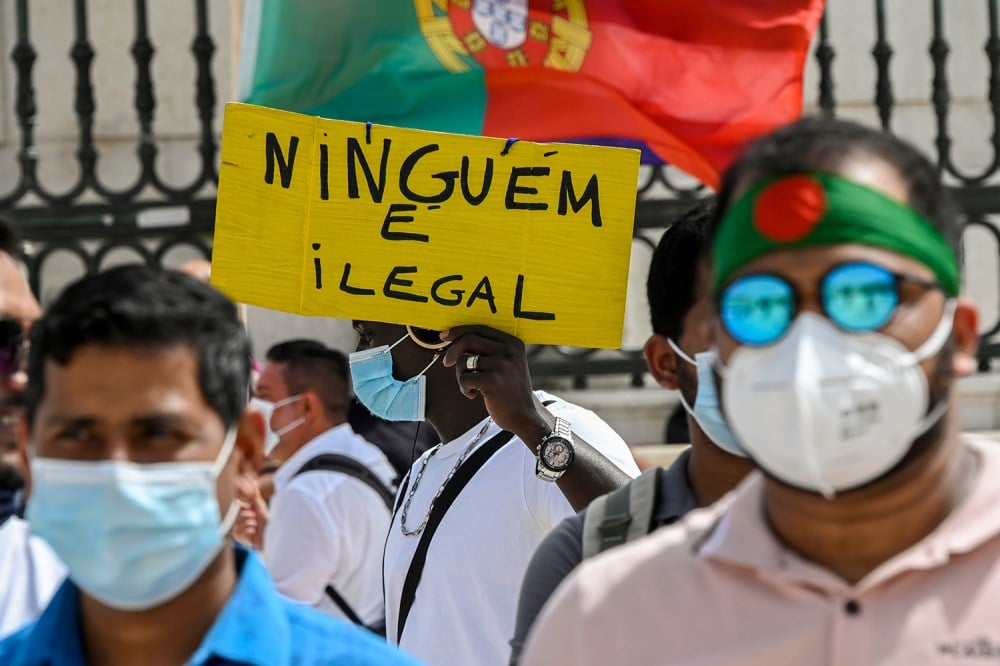LISBON, Portugal — Portugal’s caretaker government announced Saturday its intention to expel approximately 18,000 foreign nationals living in the country without legal authorization, a move that comes amid heightened political tensions and ahead of a crucial national election next month.

Minister of the Presidency António Leitão Amaro confirmed that the center-right administration will issue deportation notifications to individuals residing illegally in the country. The initial phase of the plan will begin next week, targeting around 4,500 undocumented migrants with voluntary departure requests, giving them 20 days to leave Portugal.
The announcement comes as the country prepares for an early general election set for May 18. Prime Minister Luis Montenegro, who heads the conservative Social Democratic Party, called for the snap vote in March after his minority government lost a confidence vote in Parliament, forcing its resignation.
The issue of immigration has become a flashpoint in Portuguese politics, mirroring broader European trends where concerns over border control and national identity have fueled the rise of populist and far-right movements. Portugal’s Chega party, known for its hardline stance on immigration, has surged in popularity, securing third place in last year’s election and further shifting the political landscape.
Leitão Amaro emphasized that the expulsions are part of a broader effort to reassert control over immigration enforcement and maintain public order. The minister did not specify how the government will handle migrants who refuse to leave voluntarily or whether forced deportations would follow the 20-day window.
The policy has drawn criticism from immigrant rights advocates, who argue the move risks stigmatizing vulnerable communities and undermining Portugal’s historically more tolerant approach to migration. Nonetheless, government officials insist the action is legally grounded and necessary to uphold the rule of law.
Portugal’s immigration debate is unfolding against the backdrop of a broader European reckoning with unauthorized migration, as governments from Germany to Italy pursue stricter border policies in response to increasing asylum applications and unauthorized entries.
The expulsion plan and its political ramifications are expected to be key issues as parties enter the final weeks of campaigning ahead of the May 18 vote.



